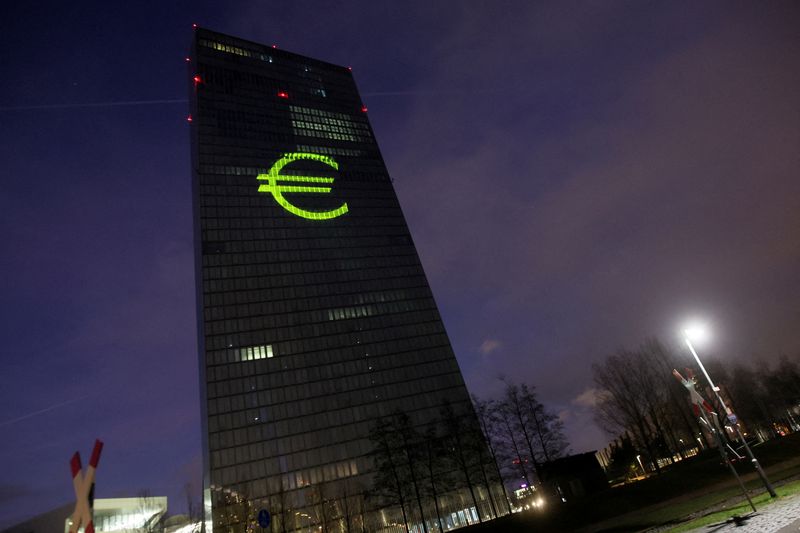By Scott Kanowsky
Investing.com -- European Central Bank policymakers were worried that inflation would remain "persistent" for some time as they laid out a path for upcoming interest rate hikes, according to minutes from their June policy meeting in Amsterdam.
Most officials agreed to raise borrowing costs by 25 basis points at its next meeting this month, arguing that this moderate increase would lead to a more orderly market reaction in an environment of high economic uncertainty. However, a number of policymakers still argued for "keeping the door open" for a larger initial uptick in rates in July, saying the central bank should not make an "unconditional commitment" to a 25 basis point hike.
But it was "broadly agreed" that the ECB would instead hint at a larger hike at its September meeting, the minutes said.
"[T]he Governing Council should at this point be more specific about its expectations for the September meeting and, in particular, open the door to an increase in the key ECB interest rates by more than 25 basis points. A larger increment would be appropriate at the September meeting if the outlook for medium-term inflation had not improved by that time," the ECB said.
Meanwhile, the minutes said, "a call" was made at the June meeting for work to begin on a new "anti-fragmentation" instrument. This plan, which was later unveiled by the ECB, aims to create a tool to prevent a blow-out in bond yields between the eurozone's peripheral and northern member states - a phenomenon dubbed "fragmentation".
This instrument is expected to be discussed in more detail when officials meet again this month.
The minutes come as the eurozone - and other economies around the world - face a surge in inflation fuelled by rising food and energy costs, supply shortages, and the war in Ukraine. June's headline reading of consumer prices in the currency bloc reached an all-time high of 8.6%, adding on to a previous record of 8.1% in the previous month.
On Wednesday, the Federal Reserve also released minutes from its latest policy meeting, where the world's most influential central bank chose to raise interest rates by 75 basis points - its biggest hike since 1994. According to the Fed's minutes, policymakers said they believed price growth represents a "significant risk", warning that inflation may become entrenched if it does not act "as warranted".
However, a string of disappointing U.S. economic data has dampened some investor expectations of further aggressive Fed rate hikes, as the central bank looks to avoid sparking a wider economic downturn.
These fears have, in turn, led investors to seek the relative safety of the dollar and shy away from riskier assets, including the euro. EUR/USD is currently trading near its lowest mark in two decades.
